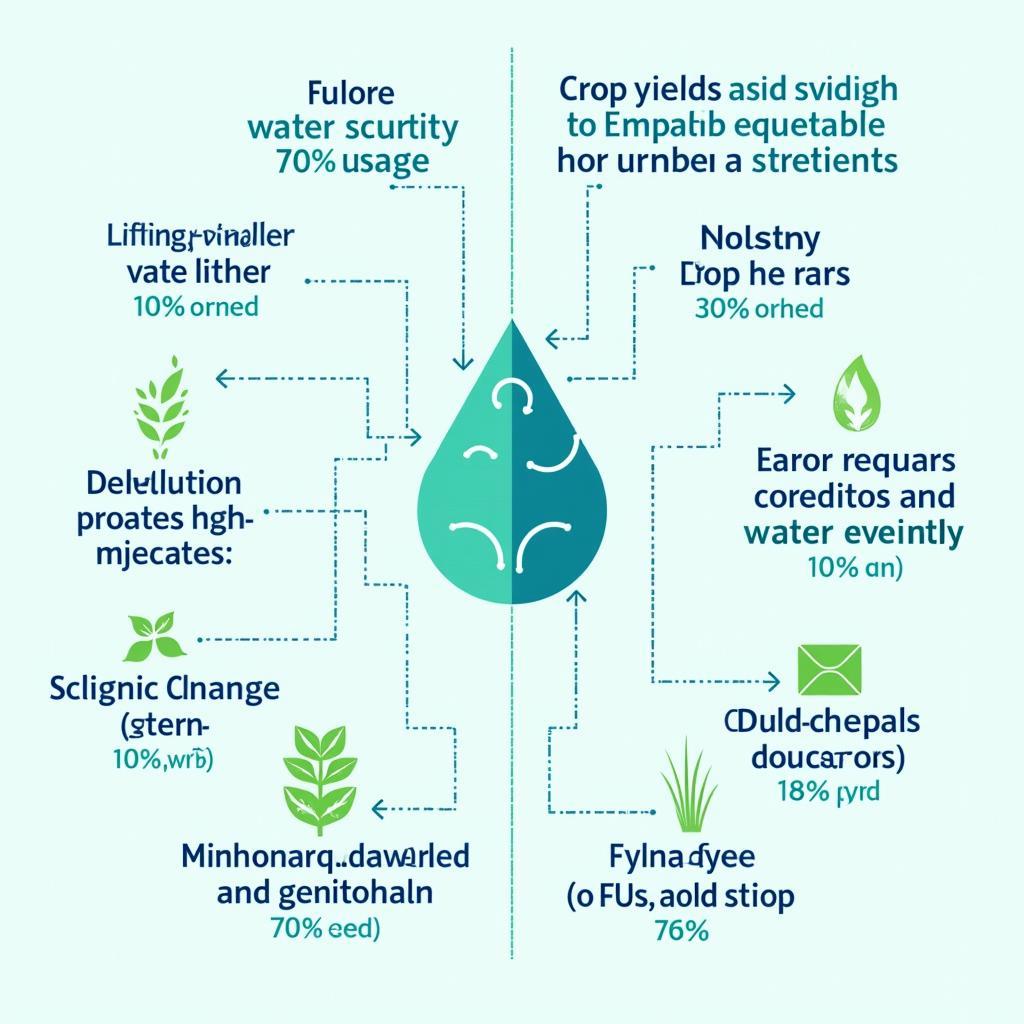Mở bài
Trong bối cảnh toàn cầu hóa ngày càng sâu rộng, vai trò của giáo dục trong việc hình thành nhận thức công dân toàn cầu đã trở thành một chủ đề nóng trong các đề thi IELTS Reading. Chủ đề “Role Of Education In Fostering Global Citizenship” thường xuyên xuất hiện dưới nhiều góc độ khác nhau, từ giáo dục đa văn hóa, trách nhiệm môi trường toàn cầu, đến sự phát triển kỹ năng liên văn hóa. Theo thống kê từ các đề thi Cambridge IELTS 10-19, chủ đề liên quan đến giáo dục và xã hội chiếm khoảng 25-30% tổng số passages.
Bài viết này cung cấp cho bạn một bộ đề thi IELTS Reading hoàn chỉnh với 3 passages có độ khó tăng dần từ Easy đến Hard, bao gồm 40 câu hỏi đa dạng giống thi thật. Mỗi passage được thiết kế cẩn thận theo chuẩn Cambridge, kèm theo đáp án chi tiết và giải thích cụ thể giúp bạn hiểu rõ phương pháp làm bài. Bạn cũng sẽ được trang bị danh sách từ vựng quan trọng được phân loại theo từng passage, cùng các collocations và ví dụ thực tế từ bài đọc.
Bộ đề này phù hợp cho học viên có trình độ từ band 5.0 trở lên, đặc biệt hữu ích cho những ai đang nhắm đến band điểm 6.5-7.5 trong phần Reading.
Hướng Dẫn Làm Bài IELTS Reading
Tổng Quan Về IELTS Reading Test
IELTS Reading Test bao gồm 3 passages với tổng cộng 40 câu hỏi, cần hoàn thành trong 60 phút. Độ khó của các passages tăng dần, trong đó Passage 1 thường có nội dung đại chúng và dễ hiểu nhất, Passage 2 có tính học thuật cao hơn, và Passage 3 là phức tạp nhất với từ vựng chuyên ngành và cấu trúc câu tinh vi.
Phân bổ thời gian khuyến nghị:
- Passage 1: 15-17 phút (13 câu hỏi)
- Passage 2: 18-20 phút (13 câu hỏi)
- Passage 3: 23-25 phút (14 câu hỏi)
Lưu ý dành 2-3 phút cuối để chuyển đáp án vào answer sheet và kiểm tra lại những câu chưa chắc chắn.
Các Dạng Câu Hỏi Trong Đề Này
Đề thi mẫu này bao gồm 7 dạng câu hỏi phổ biến nhất trong IELTS Reading:
- Multiple Choice – Lựa chọn đáp án đúng từ các phương án cho sẵn
- True/False/Not Given – Xác định tính đúng/sai của thông tin so với bài đọc
- Yes/No/Not Given – Xác định ý kiến của tác giả
- Matching Headings – Nối tiêu đề phù hợp với các đoạn văn
- Sentence Completion – Hoàn thiện câu với thông tin từ bài đọc
- Matching Features – Nối thông tin với các đối tượng tương ứng
- Short-answer Questions – Trả lời câu hỏi ngắn với từ ngữ từ bài đọc
IELTS Reading Practice Test
PASSAGE 1 – The Evolution of Global Citizenship Education
Độ khó: Easy (Band 5.0-6.5)
Thời gian đề xuất: 15-17 phút
The concept of global citizenship has undergone significant transformation since its emergence in the late 20th century. Originally, the term was primarily associated with international trade and diplomatic relations, but modern educational institutions have redefined this concept to encompass a much broader understanding of our interconnected world. Today’s schools recognize that preparing students for the 21st century requires more than traditional academic knowledge; it demands the development of cross-cultural competencies, environmental awareness, and a sense of shared responsibility for global challenges.
Educational frameworks promoting global citizenship typically focus on three core dimensions. First, the cognitive dimension emphasizes critical thinking about global issues, including climate change, economic inequality, and human rights. Students learn to analyze complex problems from multiple perspectives and understand how local actions can have far-reaching consequences. Second, the socio-emotional dimension cultivates empathy, respect for diversity, and an appreciation of different cultural values. This involves direct interaction with people from various backgrounds through exchange programs, virtual collaborations, and multicultural projects. Third, the behavioral dimension encourages students to take concrete actions that contribute to a more just and sustainable world.
 Học sinh tham gia hoạt động giáo dục công dân toàn cầu trong lớp học đa văn hóa
Học sinh tham gia hoạt động giáo dục công dân toàn cầu trong lớp học đa văn hóa
Many countries have integrated global citizenship education into their national curricula. In Finland, for instance, schools have developed comprehensive programs that combine sustainability education with international awareness. Students participate in projects ranging from local environmental initiatives to global partnerships with schools in developing nations. These programs typically begin in primary education with simple concepts like cultural appreciation and environmental stewardship, gradually progressing to more complex topics such as global governance and international development in secondary schools.
The methodological approaches to teaching global citizenship vary considerably. Some institutions favor experiential learning, where students engage directly with global issues through community service projects, international internships, or study abroad programs. Others emphasize inquiry-based learning, encouraging students to investigate global challenges independently and propose innovative solutions. Digital technology has become an increasingly important tool, enabling students to connect with peers worldwide, access diverse information sources, and participate in global online forums discussing pressing international issues.
Research indicates that effective global citizenship education produces measurable outcomes. Students exposed to these programs demonstrate higher levels of cultural sensitivity, greater environmental consciousness, and increased civic engagement. A longitudinal study conducted across fifteen countries found that participants in global citizenship programs were twice as likely to volunteer for international causes and three times more likely to consider careers in international development or humanitarian work. Furthermore, these students showed improved language skills, adaptability, and collaborative abilities – competencies highly valued in today’s globalized workforce.
However, implementing global citizenship education faces several challenges. Resource constraints limit many schools’ ability to offer international exchange programs or bring diverse speakers into classrooms. Some critics argue that the concept itself is too abstract and difficult to assess through traditional academic metrics. Others worry that emphasizing global perspectives might overshadow local cultural identities or undermine national values. Additionally, teachers often require specialized training to effectively facilitate discussions on sensitive global topics like migration, conflict, and economic disparity.
Despite these obstacles, the momentum behind global citizenship education continues to grow. International organizations such as UNESCO and UNICEF have developed comprehensive frameworks and teaching resources to support educators worldwide. Many universities now offer specialized degrees in global citizenship education, and professional development programs help teachers acquire the necessary skills. As the world becomes increasingly interconnected through technology, trade, and environmental challenges, the importance of preparing students to be informed, empathetic, and active global citizens has never been more apparent.
Questions 1-6
Do the following statements agree with the information given in the passage?
Write:
- TRUE if the statement agrees with the information
- FALSE if the statement contradicts the information
- NOT GIVEN if there is no information on this
-
The definition of global citizenship in education has remained unchanged since the 20th century.
-
The cognitive dimension of global citizenship education involves analyzing global problems from various viewpoints.
-
Finland’s global citizenship programs start with complex topics in primary schools.
-
Digital technology allows students to communicate with international peers and access diverse information.
-
Students in global citizenship programs are guaranteed to work in international organizations.
-
All teachers support the implementation of global citizenship education in schools.
Questions 7-10
Complete the sentences below.
Choose NO MORE THAN TWO WORDS from the passage for each answer.
-
The socio-emotional dimension of global citizenship education develops students’ __ and respect for different cultures.
-
Some schools use __ as a teaching method, where students directly experience global issues.
-
Research shows that students in these programs demonstrate increased __ and environmental awareness.
-
__ provide frameworks and teaching materials to help educators teach global citizenship.
Questions 11-13
Choose the correct letter, A, B, C or D.
- According to the passage, modern global citizenship education focuses on:
- A. Only international trade and diplomacy
- B. Traditional academic subjects exclusively
- C. Cross-cultural skills and global responsibility
- D. National values and local culture
- The behavioral dimension of global citizenship education encourages students to:
- A. Study theoretical concepts only
- B. Take practical actions for global improvement
- C. Focus on local issues exclusively
- D. Avoid international collaboration
- One challenge mentioned for implementing global citizenship education is:
- A. Too much government support
- B. Excessive funding availability
- C. Difficulty in measuring outcomes traditionally
- D. Universal teacher expertise
PASSAGE 2 – Pedagogical Strategies for Cultivating Global Perspectives
Độ khó: Medium (Band 6.0-7.5)
Thời gian đề xuất: 18-20 phút
The pedagogical landscape of global citizenship education has evolved considerably, moving beyond simplistic notions of international awareness toward more sophisticated frameworks that acknowledge the multifaceted nature of global interconnectedness. Contemporary educators recognize that fostering genuinely transformative global perspectives requires deliberate instructional strategies that challenge students’ preconceptions, promote critical reflection, and facilitate meaningful engagement with diverse worldviews. This paradigm shift reflects growing recognition that global citizenship is not merely about accumulating factual knowledge about other countries, but rather about developing complex cognitive competencies and ethical dispositions necessary for navigating an increasingly pluralistic world.
Constructivist approaches have gained particular prominence in global citizenship pedagogy. Rather than presenting global issues as fixed narratives with predetermined solutions, educators employing constructivist methodologies encourage students to actively construct their understanding through guided inquiry and collaborative problem-solving. This approach recognizes that students bring diverse prior experiences and cultural backgrounds to their learning, which shape how they interpret global phenomena. For instance, discussions about climate change might elicit different perspectives from students in coastal communities facing rising sea levels versus those in landlocked regions experiencing drought. Effective pedagogy validates these varied perspectives while guiding students toward evidence-based conclusions and nuanced understanding of complex causality.
Project-based learning (PBL) has emerged as particularly effective for global citizenship education. Well-designed PBL initiatives typically involve students investigating authentic global challenges over extended periods, collaborating with diverse partners, and producing tangible outcomes that address real-world needs. One exemplary program partnered secondary students in Sweden with peers in Uganda to develop sustainable water purification systems for rural communities. Throughout the six-month project, students engaged in cross-cultural dialogue, conducted scientific research, confronted logistical constraints, and ultimately implemented solutions that benefited partner communities. Such immersive experiences transcend traditional classroom boundaries, providing students with visceral understanding of global interdependence and their capacity to effect meaningful change.
The incorporation of counter-narratives and multiple perspectives represents another crucial pedagogical strategy. Mainstream curricula often present Eurocentric or Western-dominated accounts of historical events and contemporary issues, inadvertently reinforcing cultural hierarchies and limiting students’ worldview. Progressive educators actively seek to incorporate voices from the Global South, indigenous communities, and other marginalized groups, ensuring students encounter diverse interpretations of global phenomena. When studying international development, for example, students might analyze critiques from postcolonial theorists alongside traditional development economics literature, examining how different frameworks illuminate different aspects of poverty, aid effectiveness, and cultural imperialism.
 Phương pháp giảng dạy công dân toàn cầu với công nghệ và tương tác quốc tế
Phương pháp giảng dạy công dân toàn cầu với công nghệ và tương tác quốc tế
Experiential learning methodologies extend beyond project work to include service-learning, simulations, and cultural immersion experiences. Service-learning programs combine community engagement with structured reflection, helping students connect abstract concepts about global citizenship with concrete actions. Students might volunteer with refugee resettlement organizations, participate in fair trade initiatives, or support environmental conservation efforts, subsequently analyzing these experiences through frameworks drawn from sociology, political science, and ethics. Simulation exercises, such as Model United Nations or mock international negotiations, allow students to embody different national perspectives and grapple with the complexities of multilateral cooperation and competing interests.
Critical pedagogy emphasizes the importance of interrogating power structures and examining how privilege, inequality, and systemic injustice shape global relationships. Rather than presenting global citizenship as politically neutral, critical educators encourage students to analyze how historical colonialism, contemporary economic systems, and geopolitical dynamics create unequal conditions globally. This approach helps students recognize their own positionality within global power structures – acknowledging advantages or disadvantages related to nationality, language, economic status, and other factors. Such self-awareness is considered essential for authentic solidarity and ethical engagement with global issues, preventing superficial or paternalistic approaches to international cooperation.
Assessment strategies for global citizenship education present unique challenges, as traditional standardized testing proves inadequate for measuring dispositional changes, ethical development, and intercultural competence. Progressive educators increasingly employ portfolio-based assessment, where students compile evidence of their learning journey through reflective essays, project documentation, peer feedback, and self-evaluation. Some institutions use developmental rubrics that track students’ progression from ethnocentric to ethnorelative perspectives, documenting growth in cultural sensitivity and perspective-taking abilities. Others incorporate authentic assessments where students address real global challenges, with evaluation focusing on the sophistication of their analysis, creativity of solutions, and effectiveness of implementation.
The integration of digital technologies offers unprecedented opportunities for authentic global collaboration. Virtual exchange programs connect students across continents for sustained interaction around shared projects, cultural exchange, and collaborative inquiry. Unlike traditional pen-pal programs, contemporary digital platforms facilitate real-time communication, multimedia sharing, and collaborative document creation, enabling deep engagement despite geographical separation. Research indicates that well-facilitated virtual exchanges can produce learning outcomes comparable to physical study abroad programs, particularly in developing intercultural communication skills and challenging cultural stereotypes, though they may lack the immersive intensity of in-person experiences.
Questions 14-18
Choose the correct letter, A, B, C or D.
- According to the passage, constructivist approaches in global citizenship education:
- A. Present global issues with predetermined solutions
- B. Ignore students’ cultural backgrounds completely
- C. Help students build understanding through inquiry
- D. Focus only on theoretical knowledge
- The Sweden-Uganda water purification project is mentioned as an example of:
- A. Traditional classroom teaching
- B. Effective project-based learning
- C. Online virtual learning
- D. Standardized testing methods
- The incorporation of counter-narratives in curricula aims to:
- A. Simplify complex global issues
- B. Reinforce Western perspectives
- C. Provide diverse interpretations of global events
- D. Eliminate all cultural differences
- Critical pedagogy in global citizenship education encourages students to:
- A. Ignore power structures in society
- B. Accept political neutrality of education
- C. Examine inequality and systemic injustice
- D. Focus only on local issues
- Virtual exchange programs, compared to physical study abroad:
- A. Cannot develop any useful skills
- B. Produce completely identical outcomes
- C. Are less immersive but can develop similar skills
- D. Are only suitable for advanced students
Questions 19-23
Complete the summary below.
Choose NO MORE THAN TWO WORDS from the passage for each answer.
Modern global citizenship education uses various teaching strategies. The 19. __ approach helps students build their own understanding rather than receiving fixed information. Service-learning combines community work with 20. __ to help students connect theory with practice. Through 21. __ like Model United Nations, students can experience different national viewpoints. Teachers who use critical pedagogy help students understand their own 22. __ within global systems. For assessment, many schools now use 23. __ where students collect evidence of their learning over time.
Questions 24-26
Do the following statements agree with the views of the writer in the passage?
Write:
- YES if the statement agrees with the views of the writer
- NO if the statement contradicts the views of the writer
- NOT GIVEN if it is impossible to say what the writer thinks about this
-
Traditional standardized tests are sufficient for measuring students’ development in global citizenship.
-
Understanding one’s position in global power structures is necessary for genuine international cooperation.
-
Physical study abroad programs are always superior to virtual exchange programs in every aspect.
PASSAGE 3 – Epistemological Foundations and Contested Terrain in Global Citizenship Education
Độ khó: Hard (Band 7.0-9.0)
Thời gian đề xuất: 23-25 phút
The proliferation of global citizenship education initiatives across disparate educational contexts has generated considerable scholarly debate regarding the epistemological assumptions, ideological underpinnings, and practical implications of various pedagogical approaches. While proponents argue that fostering global citizenship represents an ethical imperative in an era characterized by transnational challenges and unprecedented interconnectivity, critics contend that many implementations reflect neoliberal agendas, perpetuate neo-colonial power dynamics, or promote cosmopolitan elitism that marginalizes alternative ontological frameworks. This contentious discourse reveals fundamental tensions between universalist aspirations and particularist commitments, between economic imperatives and emancipatory ideals, and between institutional constraints and transformative ambitions.
Postcolonial theorists have offered particularly trenchant critiques of mainstream global citizenship education, arguing that many programs reproduce rather than challenge asymmetrical power relations inherited from colonial encounters. Scholars such as Vanessa Andreotti distinguish between “soft” and “critical” approaches to global citizenship education. The former, they argue, often frames global problems as technical challenges requiring charitable interventions from privileged populations, thereby reinforcing paternalistic relationships between the Global North and Global South. Such approaches may inadvertently cultivate savior mentalities among students from affluent contexts, who perceive themselves as benevolent agents bringing solutions to passive recipients in developing regions. This paradigm fails to interrogate the structural inequalities, historical injustices, and ongoing exploitation that produce and perpetuate global disparities.
Critical approaches, conversely, foreground questions of complicity, systemic analysis, and transformative action. Rather than positioning students as external benefactors, critical pedagogies encourage examination of how their own socioeconomic privileges may be intrinsically linked to others’ deprivation through complex global systems of extraction, accumulation, and distribution. For instance, discussions of global poverty might explore connections between Western consumption patterns, multinational corporate practices, international trade agreements, and economic marginalization in particular regions, rather than presenting poverty as an isolated phenomenon requiring external assistance. This approach aims to cultivate not charitable inclinations but rather solidarity based on recognition of interdependence and shared responsibility for collective transformation.
The relationship between global citizenship education and economic globalization presents another site of theoretical contestation. Some scholars argue that much global citizenship discourse has been co-opted by neoliberal frameworks that emphasize individual entrepreneurship, market integration, and human capital development rather than collective welfare and structural change. In this view, global citizenship education functions primarily to prepare students for participation in globalized labor markets, cultivating cosmopolitan dispositions and intercultural competencies valued by multinational corporations seeking flexible, mobile workforces. The emphasis on individual agency and personal empowerment may deflect attention from the need for systemic reforms and collective political action to address root causes of global injustice.
 Cuộc tranh luận học thuật về các quan điểm khác nhau trong giáo dục công dân toàn cầu
Cuộc tranh luận học thuật về các quan điểm khác nhau trong giáo dục công dân toàn cầu
Communitarian philosophers raise concerns that excessive emphasis on global identification may attenuate students’ connections to local communities and particular traditions. They argue that ethical development requires rootedness in specific cultural contexts that provide substantive values and moral frameworks, rather than abstract commitments to universal principles. From this perspective, the cosmopolitan ideal of the “citizen of the world” risks producing alienated individuals lacking deep communal bonds or cultural anchors. Moreover, communitarians question whether meaningful ethical obligations can extend to vast, impersonal global populations, suggesting that moral responsibilities are necessarily graduated according to proximity and relational depth.
Indigenous scholars and decolonial thinkers have articulated particularly incisive critiques of how global citizenship education frequently marginalizes or appropriates indigenous knowledge systems. Many programs adopt Western epistemological frameworks – privileging scientific rationality, individualism, and linear progress narratives – while treating indigenous perspectives as supplementary additions or exotic curiosities rather than legitimate alternative ways of understanding human-environment relationships and collective responsibility. This epistemic violence reinscribes colonial hierarchies that position Western knowledge as universally applicable and other knowledge systems as particularistic or primitive. Genuinely decolonized global citizenship education would require fundamental reconceptualization of core assumptions, pedagogical relationships, and curricular content, granting epistemic parity to diverse ways of knowing.
The question of assessment and accountability in global citizenship education reflects broader tensions between neoliberal audit cultures and humanistic educational values. As governments and institutions increasingly demand measurable outcomes and quantifiable impacts, educators face pressure to operationalize global citizenship competencies through standardized indicators and learning metrics. However, many scholars argue that the most profound aspects of global citizenship – ethical commitments, critical consciousness, cultural humility – resist reduction to discrete, measurable behaviors. Attempts to create competency frameworks and assessment rubrics may trivialize these complex dispositions, encouraging performative demonstrations rather than genuine transformation. Moreover, the emphasis on individual assessment potentially contradicts the collective, relational nature of authentic global citizenship.
Empirical research on the efficacy of global citizenship education programs yields mixed findings, with outcomes varying considerably according to program design, implementation quality, contextual factors, and assessment methodologies. Some studies document significant gains in students’ intercultural competence, global awareness, and civic engagement intentions, while others find minimal effects or identify unintended consequences such as reinforced stereotypes or superficial engagement. Longitudinal research remains relatively limited, leaving questions about the durability of impacts and translation from educational contexts to subsequent behaviors in personal and professional life. Additionally, most existing research focuses on programs in affluent contexts, with far less attention to how global citizenship education operates in economically marginalized settings or non-Western societies.
Moving forward, scholars increasingly emphasize the need for contextually responsive approaches that resist universalizing tendencies and engage seriously with local epistemologies, power dynamics, and educational traditions. Rather than importing standardized models, effective global citizenship education must emerge from dialogue between diverse stakeholders, reflexive examination of implicit assumptions, and commitment to epistemic plurality. This requires educators to maintain productive tension between the cosmopolitan aspiration to transcend parochial boundaries and the ethical necessity of honoring particular identities, between critical analysis of global systems and appreciation for cultural distinctiveness, between ambitious transformative goals and humble recognition of education’s inherent limitations.
Questions 27-31
Choose the correct letter, A, B, C or D.
- According to postcolonial theorists, “soft” approaches to global citizenship education:
- A. Successfully challenge colonial power structures
- B. Encourage critical analysis of global inequality
- C. May reinforce paternalistic relationships between regions
- D. Completely avoid charitable perspectives
- Critical pedagogies in global citizenship education encourage students to:
- A. View themselves as external benefactors
- B. Examine their own complicity in global systems
- C. Focus only on providing charity
- D. Ignore structural inequalities
- The author suggests that neoliberal frameworks in global citizenship education emphasize:
- A. Collective political action for structural change
- B. Individual entrepreneurship and market integration
- C. Traditional communal values exclusively
- D. Indigenous knowledge systems primarily
- Communitarian philosophers are concerned that global citizenship may:
- A. Strengthen local community connections
- B. Enhance cultural rootedness
- C. Weaken students’ ties to specific traditions
- D. Promote substantive moral frameworks
- Indigenous scholars criticize global citizenship education for:
- A. Giving equal status to all knowledge systems
- B. Eliminating Western epistemological frameworks
- C. Treating indigenous perspectives as legitimate alternatives
- D. Marginalizing indigenous knowledge as supplementary
Questions 32-36
Complete the summary below.
Choose NO MORE THAN THREE WORDS from the passage for each answer.
Global citizenship education faces various theoretical debates. Critics argue that some programs reflect 32. __ or perpetuate neo-colonial dynamics. Postcolonial scholars distinguish between “soft” approaches that may encourage 33. __ among privileged students, and critical approaches that emphasize examining one’s 34. __ in global inequality. Indigenous thinkers note that many programs privilege 35. __ while treating indigenous knowledge as less important. Assessment of global citizenship competencies is challenging because aspects like ethical commitments and 36. __ cannot be easily measured.
Questions 37-40
Do the following statements agree with the information given in the passage?
Write:
- TRUE if the statement agrees with the information
- FALSE if the statement contradicts the information
- NOT GIVEN if there is no information on this
-
All scholars agree that global citizenship education successfully addresses colonial power dynamics.
-
Empirical research on global citizenship education programs shows consistently positive results across all contexts.
-
Most existing research on global citizenship education focuses on programs in wealthy countries.
-
Future global citizenship education should engage with local epistemologies and educational traditions rather than using standardized models.
Answer Keys – Đáp Án
PASSAGE 1: Questions 1-13
- FALSE
- TRUE
- FALSE
- TRUE
- NOT GIVEN
- NOT GIVEN
- empathy
- experiential learning
- civic engagement
- International organizations
- C
- B
- C
PASSAGE 2: Questions 14-26
- C
- B
- C
- C
- C
- constructivist
- structured reflection
- simulation exercises
- positionality
- portfolio-based assessment
- NO
- YES
- NO
PASSAGE 3: Questions 27-40
- C
- B
- B
- C
- D
- neoliberal agendas
- savior mentalities
- socioeconomic privileges
- Western epistemological frameworks
- critical consciousness
- FALSE
- FALSE
- TRUE
- TRUE
Giải Thích Đáp Án Chi Tiết
Passage 1 – Giải Thích
Câu 1: FALSE
- Dạng câu hỏi: True/False/Not Given
- Từ khóa: definition, global citizenship, unchanged, 20th century
- Vị trí trong bài: Đoạn 1, dòng 1-4
- Giải thích: Bài đọc nói rõ “The concept of global citizenship has undergone significant transformation” và “modern educational institutions have redefined this concept”, cho thấy định nghĩa đã thay đổi, ngược lại với câu khẳng định “remained unchanged”.
Câu 2: TRUE
- Dạng câu hỏi: True/False/Not Given
- Từ khóa: cognitive dimension, analyzing, multiple perspectives
- Vị trí trong bài: Đoạn 2, dòng 3-5
- Giải thích: Bài viết nói “the cognitive dimension emphasizes critical thinking about global issues” và “Students learn to analyze complex problems from multiple perspectives” – paraphrase của “various viewpoints”.
Câu 3: FALSE
- Dạng câu hỏi: True/False/Not Given
- Từ khóa: Finland, programs, complex topics, primary schools
- Vị trí trong bài: Đoạn 3, dòng 6-8
- Giải thích: Bài đọc cho biết programs “begin in primary education with simple concepts like cultural appreciation” và “gradually progressing to more complex topics”, cho thấy bắt đầu với chủ đề đơn giản, không phải phức tạp.
Câu 7: empathy
- Dạng câu hỏi: Sentence Completion
- Từ khóa: socio-emotional dimension, respect for different cultures
- Vị trí trong bài: Đoạn 2, dòng 7-8
- Giải thích: Bài đọc nói rõ “the socio-emotional dimension cultivates empathy, respect for diversity”.
Câu 11: C
- Dạng câu hỏi: Multiple Choice
- Từ khóa: modern global citizenship education, focuses on
- Vị trí trong bài: Đoạn 1, dòng 5-7
- Giải thích: Bài viết nói “requires the development of cross-cultural competencies… and a sense of shared responsibility for global challenges”, tương ứng với đáp án C.
 Giải thích chi tiết đáp án bài thi IELTS Reading với phương pháp phân tích
Giải thích chi tiết đáp án bài thi IELTS Reading với phương pháp phân tích
Passage 2 – Giải Thích
Câu 14: C
- Dạng câu hỏi: Multiple Choice
- Từ khóa: constructivist approaches, global citizenship
- Vị trí trong bài: Đoạn 2, dòng 2-4
- Giải thích: Đoạn văn nói “educators employing constructivist methodologies encourage students to actively construct their understanding through guided inquiry”, khớp với đáp án C “build understanding through inquiry”.
Câu 15: B
- Dạng câu hỏi: Multiple Choice
- Từ khóa: Sweden-Uganda, water purification project
- Vị trí trong bài: Đoạn 3, dòng 3-8
- Giải thích: Dự án được đề cập trong đoạn về “Project-based learning” và được mô tả là “exemplary program”, thể hiện đây là ví dụ về PBL hiệu quả.
Câu 19: constructivist
- Dạng câu hỏi: Summary Completion
- Từ khóa: approach, build own understanding, not fixed information
- Vị trí trong bài: Đoạn 2, dòng 1-4
- Giải thích: Đoạn văn mô tả “Constructivist approaches” giúp học sinh “actively construct their understanding” thay vì nhận “fixed narratives”.
Câu 24: NO
- Dạng câu hỏi: Yes/No/Not Given
- Từ khóa: standardized tests, sufficient, measuring development
- Vị trí trong bài: Đoạn 7, dòng 1-2
- Giải thích: Tác giả nói rõ “traditional standardized testing proves inadequate for measuring dispositional changes”, nghĩa là không đủ, mâu thuẫn với câu khẳng định “sufficient”.
Câu 25: YES
- Dạng câu hỏi: Yes/No/Not Given
- Từ khóa: understanding position, global power, genuine cooperation
- Vị trí trong bài: Đoạn 6, dòng 8-10
- Giải thích: Bài viết khẳng định “Such self-awareness is considered essential for authentic solidarity and ethical engagement”, “authentic solidarity” paraphrase của “genuine international cooperation”.
Passage 3 – Giải Thích
Câu 27: C
- Dạng câu hỏi: Multiple Choice
- Từ khóa: soft approaches, postcolonial theorists
- Vị trí trong bài: Đoạn 2, dòng 3-7
- Giải thích: Bài đọc nói soft approaches “often frames global problems as technical challenges requiring charitable interventions… thereby reinforcing paternalistic relationships”, khớp với đáp án C về việc củng cố quan hệ gia trưởng.
Câu 28: B
- Dạng câu hỏi: Multiple Choice
- Từ khóa: critical pedagogies, encourage students
- Vị trí trong bài: Đoạn 3, dòng 1-4
- Giải thích: Critical pedagogies “encourage examination of how their own socioeconomic privileges may be intrinsically linked to others’ deprivation”, tương đương với “examine their own complicity”.
Câu 32: neoliberal agendas
- Dạng câu hỏi: Summary Completion
- Từ khóa: critics, programs reflect
- Vị trí trong bài: Đoạn 1, dòng 3-5
- Giải thích: Bài viết nói “critics contend that many implementations reflect neoliberal agendas, perpetuate neo-colonial power dynamics”.
Câu 37: FALSE
- Dạng câu hỏi: True/False/Not Given
- Từ khóa: all scholars agree, successfully addresses, colonial power
- Vị trí trong bài: Đoạn 1 và 2
- Giải thích: Bài viết cho thấy có nhiều quan điểm khác nhau, với critics cho rằng programs “reproduce rather than challenge asymmetrical power relations”, nên không phải tất cả scholars đều đồng ý.
Câu 39: TRUE
- Dạng câu hỏi: True/False/Not Given
- Từ khóa: existing research, focuses on, wealthy countries
- Vị trí trong bài: Đoạn 8, dòng 5-7
- Giải thích: Bài viết nói rõ “most existing research focuses on programs in affluent contexts, with far less attention to… economically marginalized settings”.
Câu 40: TRUE
- Dạng câu hỏi: True/False/Not Given
- Từ khóa: future education, local epistemologies, not standardized models
- Vị trí trong bài: Đoạn 9, dòng 1-3
- Giải thích: Đoạn cuối khẳng định “scholars increasingly emphasize the need for contextually responsive approaches… Rather than importing standardized models”, khớp với nội dung câu hỏi.
Từ Vựng Quan Trọng Theo Passage
Passage 1 – Essential Vocabulary
| Từ vựng | Loại từ | Phiên âm | Nghĩa tiếng Việt | Ví dụ từ bài | Collocation |
|---|---|---|---|---|---|
| global citizenship | n | /ˈɡləʊbəl ˈsɪtɪzənʃɪp/ | quyền công dân toàn cầu | The concept of global citizenship has undergone significant transformation | foster global citizenship |
| cross-cultural competencies | n | /krɒs-ˈkʌltʃərəl kɒmpɪˈtensɪz/ | năng lực liên văn hóa | preparing students requires the development of cross-cultural competencies | develop cross-cultural competencies |
| far-reaching consequences | n | /fɑː-ˈriːtʃɪŋ ˈkɒnsɪkwənsɪz/ | hậu quả sâu rộng | understand how local actions can have far-reaching consequences | have far-reaching consequences |
| socio-emotional dimension | n | /ˌsəʊsɪəʊɪˈməʊʃənl dɪˈmenʃən/ | chiều kích cảm xúc xã hội | the socio-emotional dimension cultivates empathy | address socio-emotional dimension |
| environmental stewardship | n | /ɪnˌvaɪrənˈmentl ˈstjuːədʃɪp/ | quản lý môi trường | begin with concepts like environmental stewardship | promote environmental stewardship |
| experiential learning | n | /ɪkˌspɪərɪˈenʃəl ˈlɜːnɪŋ/ | học tập trải nghiệm | Some institutions favor experiential learning | implement experiential learning |
| civic engagement | n | /ˈsɪvɪk ɪnˈɡeɪdʒmənt/ | sự tham gia công dân | students showed increased civic engagement | increase civic engagement |
| longitudinal study | n | /ˌlɒndʒɪˈtjuːdɪnl ˈstʌdi/ | nghiên cứu dọc | A longitudinal study conducted across fifteen countries | conduct longitudinal study |
| globalized workforce | n | /ˈɡləʊbəlaɪzd ˈwɜːkfɔːs/ | lực lượng lao động toàn cầu hóa | competencies valued in today’s globalized workforce | prepare for globalized workforce |
| resource constraints | n | /rɪˈsɔːs kənˈstreɪnts/ | hạn chế về nguồn lực | Resource constraints limit many schools’ ability | face resource constraints |
| specialized training | n | /ˈspeʃəlaɪzd ˈtreɪnɪŋ/ | đào tạo chuyên môn | teachers often require specialized training | provide specialized training |
| comprehensive frameworks | n | /ˌkɒmprɪˈhensɪv ˈfreɪmwɜːks/ | khung toàn diện | UNESCO developed comprehensive frameworks | develop comprehensive frameworks |
Passage 2 – Essential Vocabulary
| Từ vựng | Loại từ | Phiên âm | Nghĩa tiếng Việt | Ví dụ từ bài | Collocation |
|---|---|---|---|---|---|
| pedagogical landscape | n | /ˌpedəˈɡɒdʒɪkl ˈlændskeɪp/ | bối cảnh sư phạm | The pedagogical landscape has evolved considerably | transform pedagogical landscape |
| multifaceted nature | n | /ˌmʌltɪˈfæsɪtɪd ˈneɪtʃə/ | bản chất đa diện | acknowledge the multifaceted nature of interconnectedness | recognize multifaceted nature |
| transformative | adj | /trænsˈfɔːmətɪv/ | có tính chuyển đổi | fostering genuinely transformative global perspectives | create transformative experiences |
| preconceptions | n | /ˌpriːkənˈsepʃənz/ | định kiến | strategies that challenge students’ preconceptions | challenge preconceptions |
| constructivist approaches | n | /kənˈstrʌktɪvɪst əˈprəʊtʃɪz/ | phương pháp kiến tạo | Constructivist approaches have gained prominence | adopt constructivist approaches |
| guided inquiry | n | /ˈɡaɪdɪd ɪnˈkwaɪəri/ | tìm hiểu có hướng dẫn | encourage students through guided inquiry | facilitate guided inquiry |
| nuanced understanding | n | /ˈnjuːɑːnst ˌʌndəˈstændɪŋ/ | hiểu biết sâu sắc | guiding students toward nuanced understanding | develop nuanced understanding |
| project-based learning | n | /ˈprɒdʒekt-beɪst ˈlɜːnɪŋ/ | học tập dựa trên dự án | Project-based learning has emerged as effective | implement project-based learning |
| tangible outcomes | n | /ˈtændʒəbl ˈaʊtkʌmz/ | kết quả hữu hình | producing tangible outcomes that address real-world needs | achieve tangible outcomes |
| counter-narratives | n | /ˈkaʊntə ˈnærətɪvz/ | tường thuật đối lập | The incorporation of counter-narratives | introduce counter-narratives |
| Eurocentric | adj | /ˌjʊərəʊˈsentrɪk/ | theo quan điểm châu Âu | Mainstream curricula often present Eurocentric accounts | challenge Eurocentric perspectives |
| postcolonial theorists | n | /pəʊstˈkɒləniəl ˈθɪərɪsts/ | nhà lý thuyết hậu thuộc địa | students might analyze critiques from postcolonial theorists | engage with postcolonial theorists |
| cultural immersion | n | /ˈkʌltʃərəl ɪˈmɜːʃən/ | hoà nhập văn hóa | include cultural immersion experiences | provide cultural immersion |
| positionality | n | /pəˌzɪʃəˈnæləti/ | vị thế xã hội | helps students recognize their own positionality | examine positionality |
| portfolio-based assessment | n | /pɔːtˈfəʊliəʊ-beɪst əˈsesmənt/ | đánh giá dựa trên hồ sơ | increasingly employ portfolio-based assessment | use portfolio-based assessment |
Passage 3 – Essential Vocabulary
| Từ vựng | Loại từ | Phiên âm | Nghĩa tiếng Việt | Ví dụ từ bài | Collocation |
|---|---|---|---|---|---|
| proliferation | n | /prəˌlɪfəˈreɪʃən/ | sự gia tăng nhanh | The proliferation of global citizenship initiatives | witness proliferation |
| epistemological assumptions | n | /ɪˌpɪstəməˈlɒdʒɪkl əˈsʌmpʃənz/ | giả định nhận thức luận | regarding the epistemological assumptions | examine epistemological assumptions |
| ideological underpinnings | n | /ˌaɪdiəˈlɒdʒɪkl ˌʌndəˈpɪnɪŋz/ | nền tảng ý thức hệ | ideological underpinnings of pedagogical approaches | analyze ideological underpinnings |
| transnational challenges | n | /trænzˈnæʃənl ˈtʃælɪndʒɪz/ | thách thức xuyên quốc gia | in an era characterized by transnational challenges | address transnational challenges |
| neo-colonial power dynamics | n | /niːəʊ-kəˈləʊniəl ˈpaʊə daɪˈnæmɪks/ | động lực quyền lực tân thuộc địa | perpetuate neo-colonial power dynamics | challenge neo-colonial power dynamics |
| cosmopolitan elitism | n | /ˌkɒzməˈpɒlɪtən ɪˈliːtɪzəm/ | chủ nghĩa tinh hoa toàn cầu | promote cosmopolitan elitism | avoid cosmopolitan elitism |
| trenchant critiques | n | /ˈtrentʃənt krɪˈtiːks/ | phê bình sắc sảo | have offered particularly trenchant critiques | deliver trenchant critiques |
| asymmetrical power relations | n | /ˌeɪsɪˈmetrɪkl ˈpaʊə rɪˈleɪʃənz/ | quan hệ quyền lực bất cân xứng | reproduce asymmetrical power relations | perpetuate asymmetrical power relations |
| paternalistic | adj | /pəˌtɜːnəˈlɪstɪk/ | theo kiểu gia trưởng | reinforcing paternalistic relationships | adopt paternalistic attitudes |
| savior mentalities | n | /ˈseɪviə menˈtæləti/ | tâm lý cứu tinh | cultivate savior mentalities among students | avoid savior mentalities |
| complicity | n | /kəmˈplɪsəti/ | sự đồng lõa | foreground questions of complicity | examine complicity |
| socioeconomic privileges | n | /ˌsəʊsiəʊˌiːkəˈnɒmɪk ˈprɪvəlɪdʒɪz/ | đặc quyền kinh tế xã hội | how their own socioeconomic privileges may be linked | acknowledge socioeconomic privileges |
| epistemic violence | n | /ɪˈpɪstəmɪk ˈvaɪələns/ | bạo lực nhận thức | This epistemic violence reinscribes colonial hierarchies | challenge epistemic violence |
| decolonized | adj | /diːˈkɒlənaɪzd/ | phi thực dân hóa | Genuinely decolonized global citizenship education | pursue decolonized approaches |
| epistemic parity | n | /ɪˈpɪstəmɪk ˈpærəti/ | ngang bằng nhận thức | granting epistemic parity to diverse ways | achieve epistemic parity |
| audit cultures | n | /ˈɔːdɪt ˈkʌltʃəz/ | văn hóa kiểm toán | tensions between neoliberal audit cultures | resist audit cultures |
| contextually responsive | adj | /kənˈtekstʃuəli rɪˈspɒnsɪv/ | phản ứng theo ngữ cảnh | need for contextually responsive approaches | develop contextually responsive programs |
| epistemic plurality | n | /ɪˈpɪstəmɪk plʊəˈræləti/ | đa dạng nhận thức | commitment to epistemic plurality | embrace epistemic plurality |
Kết bài
Chủ đề “Role of education in fostering global citizenship” không chỉ phản ánh xu hướng toàn cầu hóa trong giáo dục mà còn là một trong những chủ đề xuất hiện thường xuyên trong IELTS Reading. Qua bộ đề thi mẫu này, bạn đã được trải nghiệm đầy đủ cả ba mức độ khó từ Easy đến Hard, với tổng cộng 40 câu hỏi đa dạng về dạng và độ phức tạp.
Ba passages đã cung cấp góc nhìn toàn diện về giáo dục công dân toàn cầu: từ những khái niệm cơ bản và phương pháp giảng dạy (Passage 1), đến các chiến lược sư phạm tiên tiến (Passage 2), và cuối cùng là các tranh luận học thuật sâu sắc về nền tảng lý thuyết (Passage 3). Việc học sinh am hiểu về The role of education in fostering cultural empathy sẽ giúp bạn có thêm góc nhìn liên quan đến chủ đề này. Các đáp án chi tiết kèm giải thích đã giúp bạn hiểu rõ cách xác định thông tin trong bài, nhận biết paraphrase, và áp dụng kỹ thuật làm bài phù hợp với từng dạng câu hỏi.
Danh sách từ vựng được phân loại theo ba passages cung cấp cho bạn hơn 40 từ và cụm từ quan trọng, từ cơ bản đến nâng cao, đều là những từ vựng học thuật thường gặp trong IELTS. Hãy tận dụng bảng từ vựng để học các collocations và cách sử dụng trong ngữ cảnh thực tế.
Để đạt kết quả tốt trong IELTS Reading, hãy thực hành thường xuyên với các đề thi đầy đủ như thế này, chú ý quản lý thời gian, và phát triển kỹ năng skimming và scanning hiệu quả. Hiểu được Cultural differences in parenting styles and education cũng là một chủ đề liên quan mà bạn nên tìm hiểu thêm. Chúc bạn ôn tập tốt và đạt band điểm như mong muốn trong kỳ thi sắp tới!



[…] intermediaries and ensuring farmers receive a greater share of the final sale price. In Kenya, the Role of education in fostering global citizenship platform M-Farm has helped farmers increase their incomes by up to 20% through better market […]
[…] lý thuyết phức tạp về phi thực dân hóa giáo dục (Passage 3). Tương tự như Role of education in fostering global citizenship, chủ đề này giúp bạn hiểu sâu hơn về vai trò của giáo dục trong xã hội […]